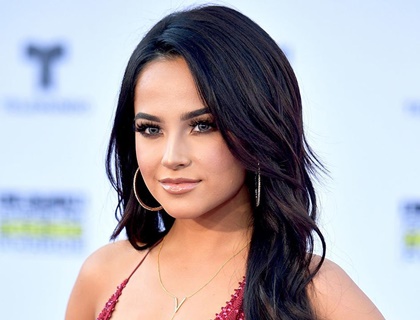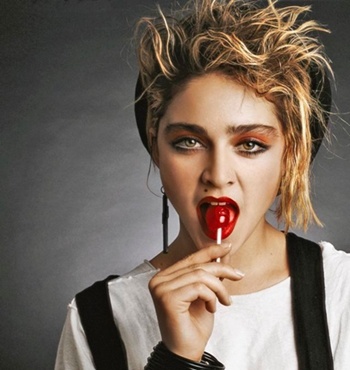Eleanor Roosevelt Biography, Height, Family, Education, Husband, Children, Quotes, Books, Death, Net Worth, Facts & More
Who is
Eleanor Roosevelt?
Eleanor Roosevelt (1884-1962) was an American politician,
diplomat, and activist who served as the First Lady of the United States from
1933 to 1945 during the presidency of her husband, Franklin D. Roosevelt. She
was a prominent advocate for civil rights, women's rights, and human rights,
and was widely respected for her intellect and humanitarian efforts.
During her time as First Lady, Eleanor Roosevelt was a vocal
supporter of her husband's New Deal programs, and she became increasingly
involved in politics and social justice issues. She held press conferences,
gave speeches, and wrote a daily newspaper column, "My Day," in which
she shared her thoughts on a wide range of issues.
After her husband's death in 1945, Eleanor Roosevelt continued
to be active in politics and advocacy. She served as a delegate to the United
Nations General Assembly and chaired the committee that drafted the Universal
Declaration of Human Rights. She was also involved in the civil rights
movement, and was a mentor to many young activists.
Eleanor Roosevelt is remembered as one of the most influential
First Ladies in American history, and as a tireless advocate for social justice
and human rights. She once said, "The future belongs to those who believe
in the beauty of their dreams," and her legacy continues to inspire people
around the world.
Eleanor Roosevelt Short Biography
Name: Anna Eleanor Roosevelt
Born: 11 October 1884
Birth Place: New York, New York, United States
Died: 7 November 1962, East 74th Street, New York, United
States
Parents: Anna Hall Roosevelt, Elliott Roosevelt
Spouse: Franklin D. Roosevelt (m. 1905–1945)
Children: Anna Eleanor Roosevelt (1906–1975)
James Roosevelt II (1907–1991)
Franklin Roosevelt (1909–1909)
Elliott Roosevelt (1910–1990)
Franklin Delano Roosevelt Jr. (1914–1988)
John Aspinwall Roosevelt (1916–1981)
Political party: Democratic
Eleanor
Roosevelt Family
Eleanor Roosevelt was born on October 11, 1884, in New York
City to wealthy parents, Anna Hall Roosevelt and Elliott Roosevelt. Her father,
Elliott, was the younger brother of President Theodore Roosevelt.
Eleanor had two younger brothers, Elliott Jr. and Gracie Hall
Roosevelt. Her mother died when she was eight years old, and her father
struggled with alcoholism and died when she was 10 years old. After her
parents' deaths, Eleanor was sent to live with her maternal grandmother in New
York City.
In 1905, Eleanor married her distant cousin, Franklin D.
Roosevelt, who later became the 32nd President of the United States. They had
six children together: Anna, James, Franklin Jr., Elliott, Franklin Jr., and
John. Tragically, her second son, Franklin Jr., died at the age of seven
months.
Eleanor Roosevelt also had a complicated relationship with her
mother-in-law, Sara Delano Roosevelt, who was known for her controlling nature.
Despite this, Eleanor remained close with her husband and her children, and was
known for her strong family values.
After her husband's death in 1945, Eleanor continued to be a
strong matriarch to her family, and was a loving grandmother to her many
grandchildren. She remained an important figure in her family's political and
social circles until her death in 1962.
Eleanor
Roosevelt Education
Eleanor Roosevelt was educated at home by private tutors until
the age of 15. She then attended Allenswood Academy, a prestigious boarding
school for girls in England, where she studied literature, history, and
language. Her headmistress, Marie Souvestre, had a profound influence on her,
encouraging her to develop her intellectual and social skills and instilling in
her a sense of social justice and civic responsibility.
After completing her studies at Allenswood, Eleanor returned
to the United States and began attending classes at New York's Barnard College.
However, she did not graduate, as her studies were cut short by her mother's
death and her father's illness. Instead, she continued her education through
reading and attending lectures, and developed a lifelong passion for learning.
Eleanor's education, both formal and informal, played a
significant role in shaping her intellectual and social values. She was an avid
reader and writer, and used her knowledge and skills to advocate for social
justice and human rights throughout her life.
Eleanor
Roosevelt Quotes
Eleanor Roosevelt was known for her insightful and inspiring
words, and many of her quotes continue to resonate with people today. Here are
some of her most famous quotes:
"No one can make you feel inferior without your
consent."
"The future belongs to those who believe in the beauty of
their dreams."
"Great minds discuss ideas; average minds discuss events;
small minds discuss people."
"It is not fair to ask of others what you are unwilling
to do yourself."
"Do one thing every day that scares you."
"Happiness is not a goal; it is a by-product."
"With the new day comes new strength and new
thoughts."
"It isn't enough to talk about peace. One must believe in
it. And it isn't enough to believe in it. One must work at it."
"The purpose of life is to live it, to taste experience
to the utmost, to reach out eagerly and without fear for newer and richer
experience."
Eleanor Roosevelt's words continue to inspire people around
the world to stand up for what they believe in and work towards a more just and
equitable society.
Eleanor
Roosevelt Death
Eleanor Roosevelt passed away on November 7, 1962, at the age
of 78. She died of congestive heart failure at her home in New York City. Her
death was widely mourned, and she was remembered as a tireless advocate for
human rights and a champion of social justice.
Eleanor's legacy continues to inspire people today, and she is
remembered as one of the most influential women in American history. Her
contributions to politics, diplomacy, and social activism helped to shape the
United States and the world, and her dedication to the welfare of others
remains an example for all who seek to make a difference in the world.
Eleanor
Roosevelt facts
Here are some interesting facts about Eleanor Roosevelt:
Eleanor was the first First Lady to hold regular press
conferences and write a daily newspaper column.
She was also the first First Lady to fly in an airplane.
Eleanor was an advocate for civil rights and was a key figure
in the civil rights movement of the 1950s and 1960s.
During World War II, she visited American soldiers in combat
zones and hospitals, becoming known as the "Soldiers' First Lady."
Eleanor was a strong supporter of the United Nations, and
played a key role in the drafting of the Universal Declaration of Human Rights.
She was a prolific writer, publishing more than 27 books in
her lifetime.
Eleanor was a skilled diplomat and negotiator, and represented
the United States at the United Nations for many years.
She was the first First Lady to testify before Congress,
advocating for better housing conditions and civil rights.
Eleanor was a passionate advocate for education, and served as
a board member for several universities and colleges.
She was known for her warm and engaging personality, and was
loved by the American people for her compassion, intelligence, and strength.
What is
Eleanor Roosevelt most famous for?
Eleanor Roosevelt is most famous for her role as the
longest-serving First Lady of the United States (1933-1945) during the
presidency of her husband, Franklin D. Roosevelt. However, her influence and
accomplishments extended far beyond her time in the White House. Here are some
of the key reasons why she is renowned:
Human Rights Advocacy: Eleanor Roosevelt is often referred to
as the "First Lady of the World" for her passionate commitment to
human rights. She played a pivotal role in the drafting and adoption of the
Universal Declaration of Human Rights by the United Nations in 1948. Her
tireless advocacy for civil rights, women's rights, and the rights of
marginalized populations had a lasting impact on global human rights efforts.
Political Activism: As First Lady, Eleanor was highly engaged
in her husband's administration. She provided advice and support, and she held
press conferences, giving a voice to important social issues of the time. She
advocated for policies related to labor rights, racial equality, and social
welfare.
Diplomacy and International Relations: Eleanor Roosevelt
traveled extensively both within the United States and abroad, representing the
United States and promoting goodwill. She visited war-torn Europe during World
War II and met with leaders and citizens to boost morale and gather
information.
Journalism and Writing: Eleanor was a prolific writer and
journalist. She authored a daily newspaper column, "My Day," from
1935 to 1962, where she expressed her views on politics, human rights, and
social issues. She also wrote several books, including her autobiography
"This Is My Story."
Education and Social Reform: Eleanor Roosevelt was a vocal
advocate for education and social reform. She worked to improve conditions for
the unemployed during the Great Depression, supported initiatives for
affordable housing, and championed programs to promote the well-being of
children and families.
Role Model and Inspiration: Eleanor Roosevelt's resilience,
independence, and dedication to public service made her a role model for women
around the world. Her impact on shaping the role of the First Lady and her
unwavering commitment to making a difference continue to inspire generations.
Eleanor Roosevelt's legacy extends beyond her time in the White
House. She remains an icon of social activism, human rights advocacy, and
leadership. Her contributions to American society and the world at large have
left an indelible mark on history.
Eleanor
Roosevelt Books
Eleanor Roosevelt was a prolific writer and author, and she
penned numerous books on a variety of topics including human rights, politics,
and personal reflection. Here are some of her notable books:
"This I Remember" (1949): In this memoir, Eleanor
Roosevelt reflects on her childhood, her marriage to Franklin D. Roosevelt, her
experiences as First Lady, and her post-White House life.
"On My Own" (1958): Another memoir, this book covers
the years after Franklin Roosevelt's death in 1945, discussing Eleanor's life
as a widow and her continued engagement in public service.
"Tomorrow Is Now" (1963): In this book, Eleanor
Roosevelt addresses pressing social and political issues of her time, including
civil rights, nuclear disarmament, and human rights. She emphasizes the
importance of being proactive and making positive change in the world.
"You Learn by Living: Eleven Keys for a More Fulfilling
Life" (1960): In this book, Eleanor Roosevelt shares insights and lessons
she learned throughout her life. Each chapter focuses on a specific principle
for personal and spiritual growth.
"The Autobiography of Eleanor Roosevelt" (1961): A
comprehensive autobiography covering her life up to 1961. It provides a
detailed account of her experiences, roles, and relationships.
"If You Ask Me: Essential Advice from Eleanor
Roosevelt" (2017): This book compiles advice columns from Eleanor's
"My Day" newspaper column, offering her thoughts on various subjects
and providing guidance on life, love, and more.
"The Moral Basis of Democracy" (1940): This book
explores the relationship between democracy and ethics. Eleanor Roosevelt
discusses the responsibilities of citizens in maintaining a just and democratic
society.
These are just a few examples of the many books written by
Eleanor Roosevelt. Her writings provide valuable insights into her thoughts on
politics, human rights, personal growth, and the challenges of her time.
Eleanor
Roosevelt Children
Eleanor Roosevelt, the former First Lady of the United States
and a prominent human rights advocate, had six children. Here are their names:
1. Anna Eleanor Roosevelt: Anna was the first child of Eleanor
and Franklin D. Roosevelt. She was born on May 3, 1906, and was often known as
"Bunny."
2. James Roosevelt: James, also known as "Jimmy,"
was the second child. He was born on December 23, 1907. He followed in his
father's footsteps and became involved in politics.
3. Franklin Delano Roosevelt Jr.: Franklin Jr., often referred
to as "Frank," was born on August 17, 1909. He served in various
government positions and was a lawyer.
4. Elliott Roosevelt: Elliott, born on September 23, 1910, was
known for his adventurous spirit and served in the military during World War
II.
5. Franklin D. Roosevelt Jr. (second child with the same
name): Eleanor and Franklin had a second son named Franklin, born on August 8,
1914. He was often called "Buzzie."
6. John Aspinwall Roosevelt: John, the youngest child, was
born on March 13, 1916. He was known for his artistic pursuits and became a
sculptor.
Eleanor Roosevelt's children led diverse lives and made their
own contributions to society, both in public service and other fields.
How did
Eleanor Roosevelt fight for human rights?
Eleanor Roosevelt was a tireless advocate for human rights and
played a significant role in advancing the cause both in the United States and
on the international stage. Here are some ways in which she fought for human
rights:
Universal Declaration of Human Rights: Eleanor Roosevelt
chaired the United Nations Human Rights Commission and played a pivotal role in
drafting and championing the Universal Declaration of Human Rights (UDHR),
which was adopted by the United Nations in 1948. The UDHR remains a
foundational document that outlines the rights and freedoms to which all people
are entitled.
Advocacy for Marginalized Groups: Eleanor Roosevelt used her
platform to advocate for the rights of marginalized and vulnerable groups,
including racial and ethnic minorities, women, children, and people with
disabilities. She believed that everyone should have equal access to
opportunities and protections.
Civil Rights: She was a strong advocate for civil rights and
racial equality. She publicly supported efforts to desegregate schools and
fought against racial discrimination.
Women's Rights: Eleanor Roosevelt was a vocal supporter of
women's rights and gender equality. She believed in women's right to work,
access education, and participate in public life. She also worked towards
ending discriminatory practices against women.
Journalism and Writing: Eleanor Roosevelt used her writing to
promote human rights. Her newspaper column "My Day" addressed a wide
range of issues, including civil rights, women's rights, labor rights, and
international conflicts. She used her platform to raise awareness and advocate
for positive change.
International Relations: Eleanor Roosevelt's diplomatic
efforts focused on promoting human rights and understanding between nations.
She traveled extensively, meeting with leaders and citizens of various
countries, and used her influence to encourage the adoption of human rights
principles globally.
Support for Refugees: During and after World War II, Eleanor
Roosevelt supported efforts to aid and resettle refugees. She worked to improve
conditions for displaced persons and advocated for their rights.
Educational Initiatives: Eleanor Roosevelt believed that
education was essential for promoting human rights awareness. She was involved
in educational projects that aimed to spread knowledge about human rights and
promote tolerance and understanding.
Eleanor Roosevelt's dedication to human rights was rooted in
her belief in the inherent dignity and worth of every individual. Her advocacy
work helped shape modern human rights discourse and played a significant role
in establishing human rights as a fundamental international principle.
Eleanor Roosevelt
Eleanor Roosevelt Biography
Eleanor Roosevelt Height
Eleanor Roosevelt Family
Eleanor Roosevelt Education
Eleanor Roosevelt Husband
Eleanor Roosevelt Children
Eleanor Roosevelt Quotes
Eleanor Roosevelt Books
Eleanor Roosevelt Death
Eleanor Roosevelt Net Worth
Eleanor Roosevelt Facts & More














0 Comments